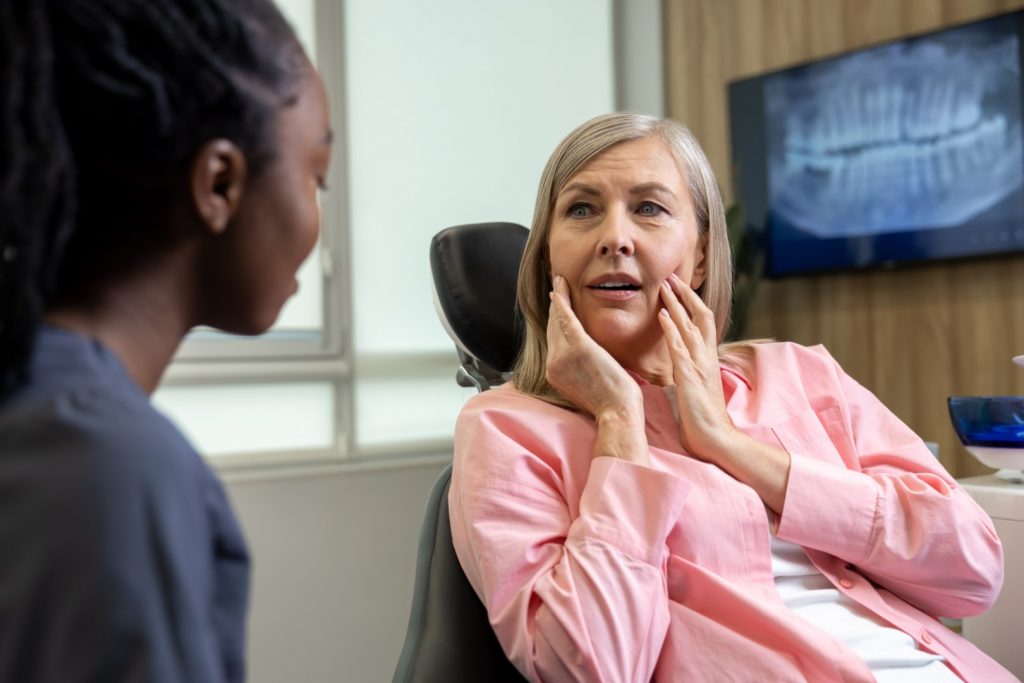Resource Library
Start Reading

Menopause is a natural biological process that women go through as they age, typically in their late 40s to early 50s. During this time, hormonal changes cause the end of a woman’s menstrual cycle and other health changes. But while hot flashes are one of its most well-known symptoms, you may be surprised to learn that menopause also affects oral health. Research indicates that 84% of women don’t realize oral health symptoms and discomfort could be linked to menopause. It’s important to stay on top of menopause and oral health changes for your overall well-being. Here’s what you need to know.

The hormone estrogen plays a role in maintaining the health of the gums and the bones that support the teeth, so when estrogen levels drop during menopause, women may be more susceptible to gum disease. If left untreated, this can lead to symptoms such as bleeding gums, inflammation, and even tooth loss.
Yes. Estrogen helps regulate saliva production, so about 25% of women may experience a decrease in saliva flow when estrogen levels decrease. This can lead to dry mouth, which affects oral comfort and increases the risk of tooth decay and other oral health issues.
Yes. Changes in hormone levels can also make teeth more sensitive to hot and cold temperatures, as well as acidic or sugary foods. This can make eating and drinking uncomfortable for women going through menopause.
 Yes. With symptoms such as bleeding gums, inflammation, gum disease, and bone loss, menopause and toothache can go hand in hand.
Yes. With symptoms such as bleeding gums, inflammation, gum disease, and bone loss, menopause and toothache can go hand in hand.
Yes. Menopause can also lead to oral discomfort, such as a sore or burning mouth. This condition, known as menopausal gingivostomatitis, can cause red, shiny gums and a dry, burning sensation in the mouth. Women may also experience a metallic taste or altered sense of taste during this time.
Yes. Menopause can affect teeth alignment. As estrogen levels decline, changes in bone density can occur, affecting the jawbone and potentially causing teeth to shift. This can lead to bite issues, crowding, or even changes in facial structure. According to a recent survey, 79% of women reported observing changes in their smiles as they grew older.
 Treatment for menopause-related oral health issues can vary depending on the specific condition.
Treatment for menopause-related oral health issues can vary depending on the specific condition.
If you are going through menopause, it is important to tell your dentist about any oral health changes you may be experiencing. Your dentist can help keep your mouth healthy during this time.
At Penn Dental Family Practice, we’re not just experts in safeguarding your oral health and comfort; we are dedicated to developing personalized solutions to address your specific challenges. And that includes being by your side during menopause.
To make an appointment today, use this form or call 215-898-PDFP (7337). Whether it’s gum disease, dry mouth, menopause sore mouth, or bone loss, you can relax knowing you’ll get the support and guidance you need and deserve to maintain a healthy smile throughout your menopausal journey.